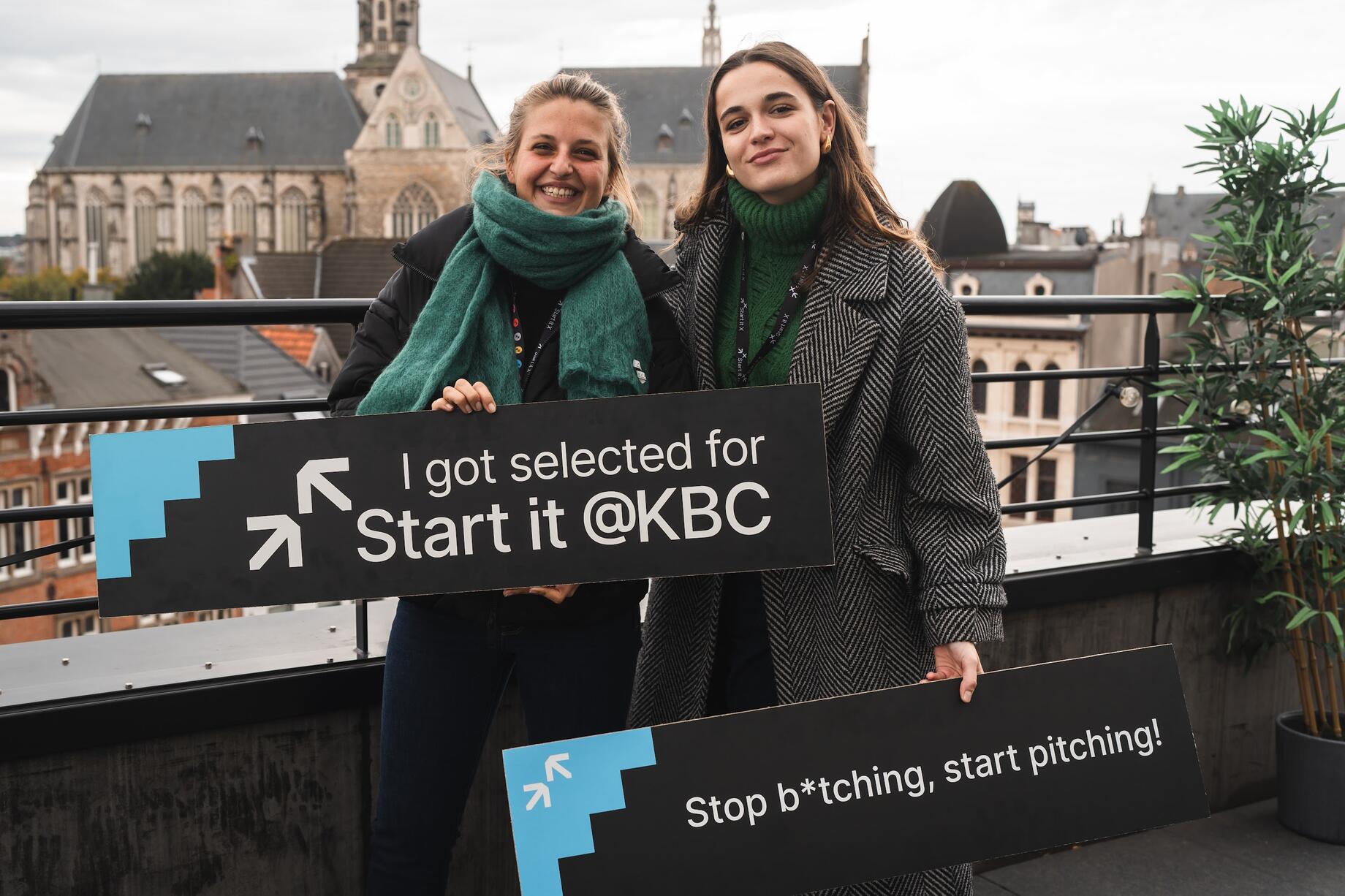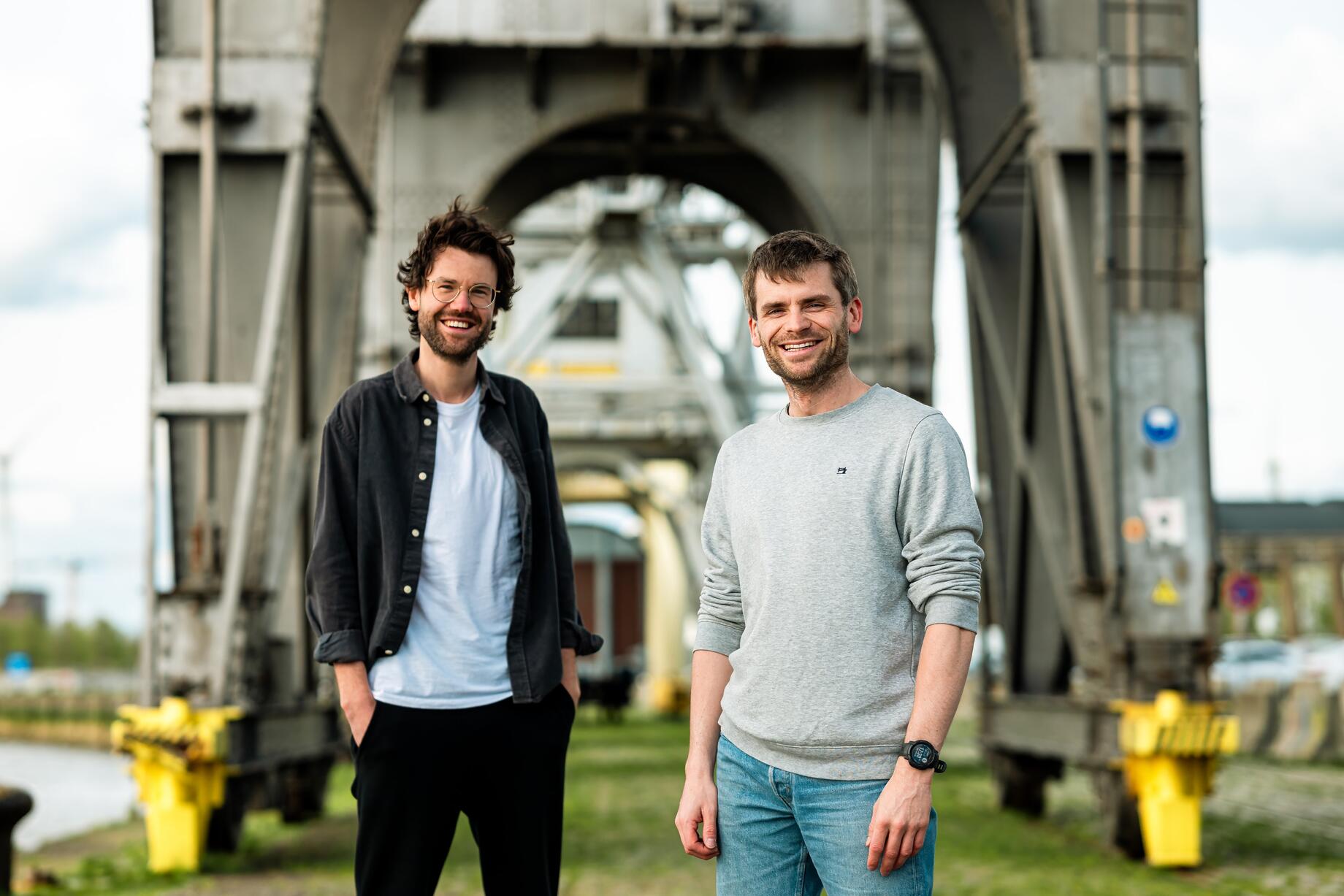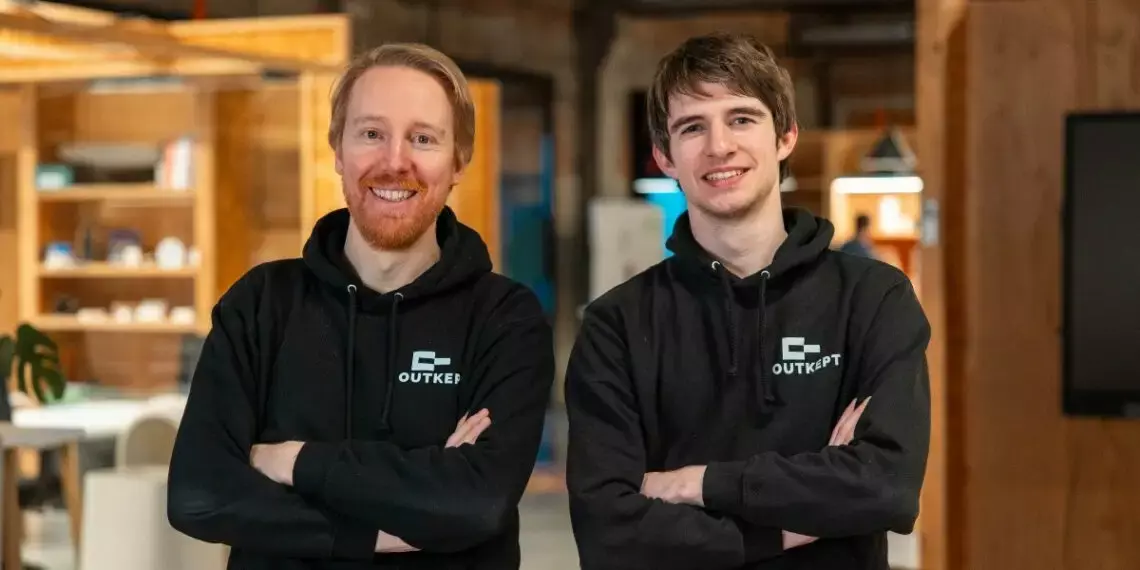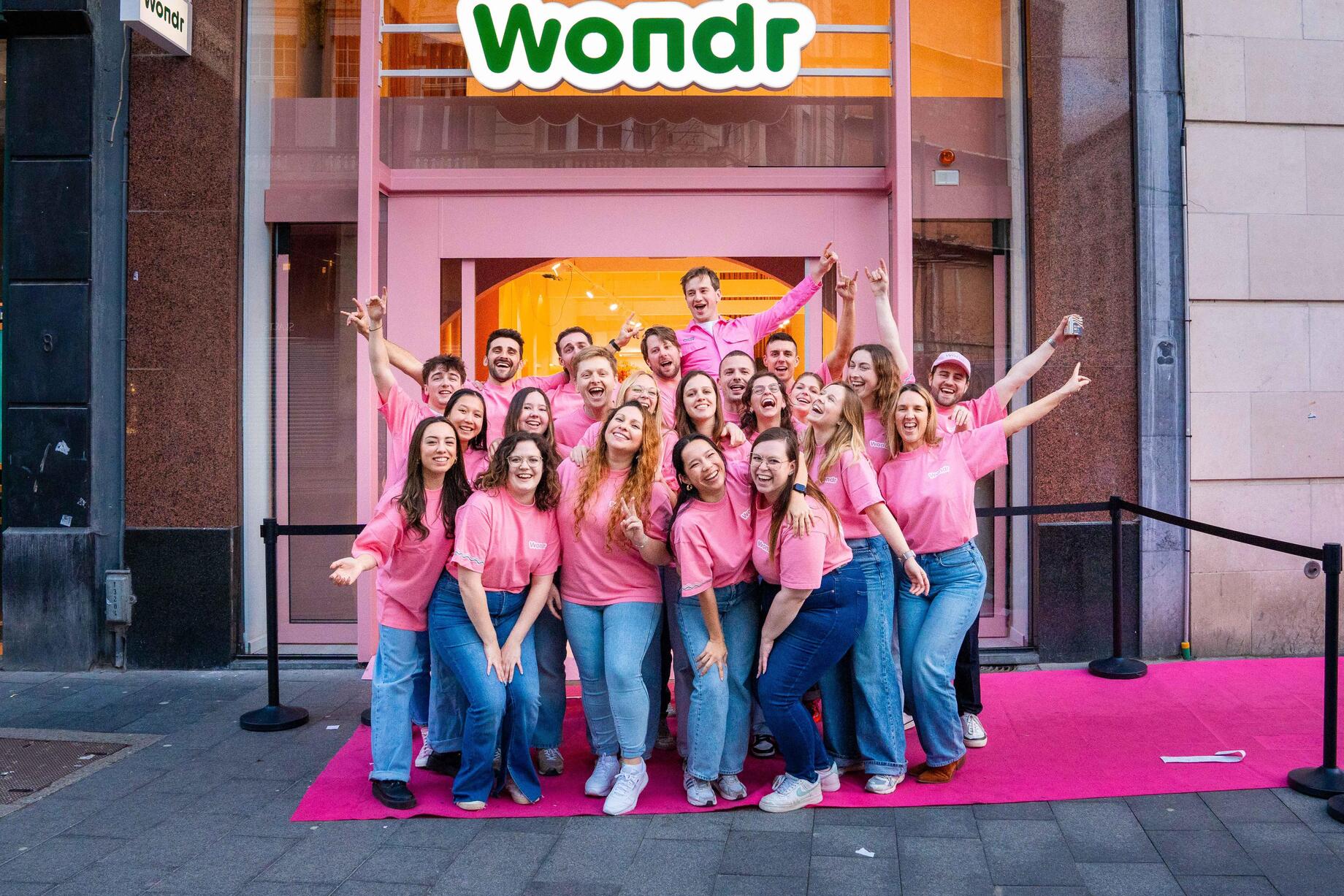Launch your global journey with Start it @KBC
This succesful accelerator program has already guided more than 1500 start-ups over the past ten years.
You can register for the next cohort until September 17, earning you a ticket to their ‘Hall of Fame’—think of Aikido Security, OTIV, Companion.energy, Nona, Outkept, and Planet B.
Once selected, you will receive a year of coaching to scale and (further) market your product, the opportunity to connect with a global network, and cross-pollination at the busiest coffee machine in Ghent.
But how do you prepare for this selection process? We asked Lode Uytterschaut (CEO) and Ludo Dhelft (Business Coach). Experienced experts Jonas Verstraeten (Companion.energy), Simon Bauwens (Outkept), and Tibbe Verschaffel (Planet B) are also happy to share some tips.
-
As a starting baker, you can apply for a loan that gets approved before you start. But as a starting start-up, you simply don’t get a loan.
In recent years, the number of start-ups in Ghent has steadily increased. And it’s a good thing, too, because a decade ago, very little was happening around start-ups, even nationally. “That idea matured in my mind while working at KBC,” says Lode. "Iminds was here in Ghent, but that was it. Especially innovative entrepreneurs were left out in the cold and heard ‘no’ everywhere. We wanted to change that together with those entrepreneurs. We didn’t know what kind of program, but we looked at what these entrepreneurs really needed. Fortunately, the ‘De Boerentoren’ building became available after the crisis, where everything started. We could use one floor there and guide six start-ups. We were on the 19th floor, and that was, literally, our only offer at that time: a room with a view’.
Our primary focus are those innovative entrepreneurs because experience disappointment, time and time again. As a starting baker, you can apply for a loan that gets approved before you start. But as a starting start-up, you simply don’t get a loan. Mind you, that’s justified, of course. You first have to prove that there is indeed a market for it. For a baker, the market is already there.”
What sets the program apart
The program at Start it @KBC is where it is today, thanks to the input from the start-ups. “What sets us apart from the rest?” Lode repeats. “First and foremost, we offer all this for free, which is quite unique. And as a start-up, you also remain 100% company owner.”
“In addition, you get access to an extensive network,” Ludo adds. “The coaches will always know someone who either knows your market inside out or has worked with a similar product. We also have many alumni around, as the program lasts a year, and we work with two selection rounds per year. So, there is always a six-month overlap. This interaction is unique: the ‘newbies’ learn from the ‘veterans’, and the alumni are immediately up to speed with the new ideas. And all of this happens at our coffee machine. The number of business plans this machine has overheard, you can’t even imagine."
-
All of this happens at our coffee machine. The number of business plans this machine has overheard, you can’t even imagine.
The benefits of local collaborations
“We also work very closely with other partners within the local ecosystem,” adds Lode. "Ludo is on the jury of Gentrepreneur. With NOA (formerly Netwerk Ondernemen) and imec.istart, we’re also involved in The Growth Collective.
We’ve noticed that the start-ups here in Ghent are already at a certain maturity level. There’s imec.istart and DO!Gent here, which goes hand in hand with a lot of student entrepreneurship. By the way, the latter is the best way to start entrepreneurship, in my opinion. You gain experience and still have that safety net, as you have fewer obligations than when you are older. I always said that working at a start-up is the best way to know what it’s like actually to have a start-up. But that’s not true, because you just have to do it. What’s the worst that can happen to a student entrepreneur? That you lose time. But in the meantime, you are much further along your learning curve."
What you need to know about the selection
How can you increase your chances of being selected? “Well, you need to have an innovative product or offer,” says Ludo. “You need to be able to go to market within a year. It doesn’t have to be a finished product; we are here to strengthen the foundations. And it must, of course, be scalable.”
“Our focus is really on the market,” explains Lode. “Many start-ups succeed or fail based on ‘time to market’. So, it’s not about the team or money but about the timing of entering the market. Therefore, having a clear view of this and assessing it well is crucial. This might also be a USP of the program. Many accelerators focus on attracting investments. But that is, in our opinion, not the right way. Start-ups always find money if they can show that they're entering the right market at the right time, with the right team and the correct solution.”
“We also pay attention to personality during the selection,” says Ludo. “Can we coach them? Can we inspire them? If you, for example, cannot handle the jury’s questions, then you cannot handle your audience's challenges or the coaches' feedback during the program.” “Indeed,” Lode agrees, “that's even more important than the idea. Look at Crocs, and they have also been successful. (laughs) We think seeing how entrepreneurs sell their ideas and what problems they solve is important. During those two days, we see 150 start-ups, and it’s really about the persuasiveness and authenticity you bring yourself.”
-
During those two days, we see 150 start-ups, and it’s really about the persuasiveness and authenticity you bring yourself.
Companion.energy
Let’s take a look at the other side of the table. One of the selected start-ups is Companion Energy. They’ve just completed a successful funding round of €2.1 million and are growing rapidly. “We mainly signed up because we were looking for a network, support, and office space," says co-founder Jonas Verstraeten. “In the end, we learned so much, like the structure they offer. You are encouraged to set goals and regularly report back on them. That ‘external accountability’ helps to set clear goals for yourself. It also just feels good to be able to rely on other starting entrepreneurs who face similar challenges. So I would recommend it to any starting entrepreneur, absolutely!’”
Outkept
Simon Bauwens, from Outkept, enrolled his start-up for coaching in preparation for a funding round. Besides that, they wanted to build more credibility within their relevant network. “We’ve learned so much”,’ says Simon Bauwens, “not only in terms of sales and product market fit but also ways to communicate with investors. I still benefit greatly from the templates we received during the program and, of course, from the relationships we built. The great thing about that network is that it is so large and diverse. You can perfectly connect with the people who are most relevant to you. For us, those were mainly other SaaS founders who had already completed a successful journey.’”
Planet B
We also asked about the side effects of this program to Tibbe Verschaffel from Planet B. “I signed up because of the community and because I heard you could use a co-working space shared with other start-ups,” says Tibbe. “I remember being quite nervous about that conversation because I was only working on Bambooze at the time, selling bamboo straws. It was a real challenge to convince them that we wanted to build the ‘new school Unilever,’ but only with healthy products. By healthy, I mean for people, animals, and the planet. In the meantime, Planet B already has several brands, so we have really grown since then.
Once we were selected, we could have conversations with potential mentors. I remember talking to 14 people because I wanted to hear what each of them had to offer. One of the people I thought would never become my mentor eventually became our first business angel. So that was an instrumental contact. In short, it not only sharpened my general knowledge about entrepreneurship but also connected me with many interesting people.'"
Discover Invest in Ghent
Are you eager to become part of this inspiring healthtech ecosystem? The team at Invest in Ghent is ready to help you start or scale your business in Ghent through our expert local guidance and introductions so your business can grow even further.





